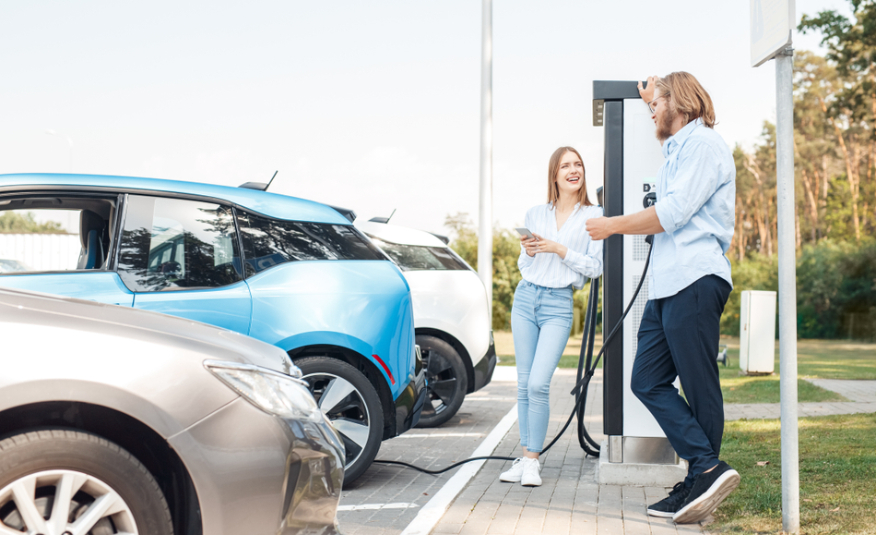Introduction:
In the realm of automotive innovation, electric cars have emerged as the vanguards of a sustainable future. While Tesla has dominated the electric vehicle (EV) market, a captivating narrative unfolds when we explore the realm of affordable electric cars. This article delves into the growing landscape of electric mobility, where options beyond Tesla are proving that electric doesn’t have to mean extravagant.

The Tesla Factor:
Tesla, with its charismatic CEO Elon Musk and cutting-edge technology, has undeniably been the trailblazer in the electric vehicle industry. However, the price tags associated with Tesla models, such as the Model S, Model 3, and Model X, have often placed them in the premium category, leaving budget-conscious consumers yearning for more accessible options.
Rising Stars in Affordable Electric Mobility:
Beyond the glamour of Tesla, a new wave of affordable electric cars has emerged, challenging the perception that electric vehicles are exclusively for the affluent. Models from companies like Nissan, Chevrolet, and Hyundai have started to bridge the gap, making electric mobility a reality for a broader demographic.
Nissan Leaf: Electric Efficiency at a Modest Price:
Nissan’s Leaf stands out as one of the pioneers in making electric cars accessible. With its sleek design and commendable range, the Leaf has become a symbol of efficient electric mobility without breaking the bank. The affordability of the Leaf has played a pivotal role in democratizing electric driving.
Chevrolet Bolt: Breaking Barriers in Range:
Chevrolet’s Bolt has shattered the misconception that affordable electric cars compromise on range. Boasting an impressive electric range, the Bolt has become a game-changer in the EV landscape. Its competitive pricing, combined with a robust range, positions it as a compelling option for those seeking an economical electric ride.
Hyundai Kona Electric: Merging Affordability with SUV Appeal:
The Hyundai Kona Electric takes affordability a step further by combining the popular SUV design with electric efficiency. This model caters to the growing demand for electric SUVs, offering a spacious and stylish alternative to traditional gasoline-powered SUVs without the hefty price tag.
Government Incentives and Affordability:
Several governments worldwide are actively promoting the adoption of electric vehicles by offering incentives and subsidies. These financial perks aim to make electric cars more affordable and encourage a shift towards sustainable transportation. Understanding and leveraging these incentives can significantly reduce the overall cost of purchasing an electric vehicle.
Total Cost of Ownership: Electric vs. Conventional Cars:
While the initial purchase price of electric cars may seem higher, the total cost of ownership over the vehicle’s lifespan can often be lower than that of traditional gasoline-powered cars. Factors such as lower maintenance costs, reduced fuel expenses, and potential tax incentives contribute to a more cost-effective ownership experience.
Charging Infrastructure and Convenience:
The proliferation of charging infrastructure plays a crucial role in making electric cars a viable and convenient choice. As the charging network expands, concerns about range anxiety diminish, making electric cars a practical and accessible option for daily commuting and longer journeys.
The Role of Competition:
The increasing competition in the electric vehicle market is a driving force behind the push for affordability. Automakers are compelled to enhance features, increase range, and lower prices to remain competitive. This healthy competition benefits consumers, as more options become available at various price points.
The Environmental and Economic Benefits:
Beyond the financial considerations, choosing an affordable electric car contributes to environmental sustainability. Electric vehicles produce fewer emissions, reduce dependence on fossil fuels, and play a crucial role in combating climate change. Additionally, the economic benefits of transitioning to electric mobility extend to reduced healthcare costs associated with air pollution and the creation of green jobs in the renewable energy sector.
Conclusion:
The narrative surrounding electric cars is evolving rapidly, and the notion that they are exclusively the domain of luxury is dissipating. Affordable electric cars from manufacturers beyond Tesla are reshaping the landscape, making sustainable and efficient mobility accessible to a broader audience. As technology advances, charging infrastructure expands, and competition intensifies, the electric revolution is poised to redefine the automotive industry, proving that going green doesn’t have to come with a hefty price tag. The road to electric affordability is not just a path less traveled; it’s becoming the highway of the future for conscientious and budget-conscious drivers alike.
